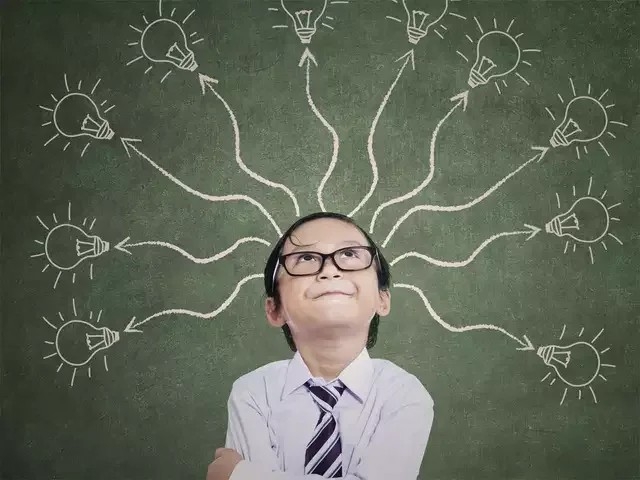When we think scientifically, we respect facts, reconsider our beliefs, apply our knowledge on the ground, and constantly learn new things. This method allows us to coexist efficiently with our ever-changing world.
Methods for Applying Scientific Thinking in Our Daily Lives
1. Respect facts and evidence
People who think scientifically search for facts and evidence to prove their views because this is the only data they can use to deal with the world and improve their lives. A person who searches for the truth is better than a delusional person. Whether the truth is pleasant or painful, it frees us from ignorance and suffering. Despite the power of the truth, many people fear it.
People ignore facts and evidence contradicting their assumptions, biases, and desires. They are unwilling to admit when they are wrong. They cling to a view of the world that does not agree with the reality around them because they are not ready to accept it yet.
A scientist must use their mind and accept reality as it is at all times and respect the facts and evidence that they encounter in daily life.
- “For me, it is far better to grasp the Universe as it is than to persist in delusion, however satisfying and reassuring.” - Carl Sagan - physicist.
- “I believe in evidence. I believe in observation, measurement, and reasoning, confirmed by independent observers. I'll believe anything, no matter how wild and ridiculous, if there is evidence for it.” - Isaac Asimov - author.
- “We can ignore reality, but we cannot ignore the consequences of ignoring reality.” - Ayn Rand - novelist.

2. Reconsider beliefs
Even though we strive to be truthful, we must also acknowledge that human intellect is fallible. Even the most intelligent individuals have some bias in their beliefs, and everyone makes mistakes occasionally. Since you can never be sure when you might be mistaken, true intelligence is the ability to challenge your beliefs constantly.
Doubt is useful and necessary for learning and growth because it pushes us to acquire more knowledge and information, especially those that contradict the beliefs we were raised on. Anyone who has absolute confidence in their information or thinks they know everything is lying to themselves. Humility and not clinging to our beliefs make us realistic people.
- “I am too much of a skeptic to deny the possibility of anything.” - Thomas Henry Huxley - biologist.
- “Science is only to say what's more likely and less likely, not to prove everything possible and impossible.” - Richard Feynman - physicist.
- “A casual stroll through a lunatic asylum shows faith does not prove anything.” - Friedrich Nietzsche - philosopher.
- “The greatest enemy of knowledge is not ignorance, it is the illusion of knowledge.” - Stephen Hawking - physicist.
3. Applying knowledge on the ground
The most critical knowledge is practical knowledge that is useful to our lives. Do not be preoccupied with philosophy and theories if they do not positively impact your life. Most of the time, we focus on the information more than on its application.
Results should always be the main goal. What works for us is often a better measure of truth than what does not work for us. Apply your knowledge, test your ideas, try them on the ground, and focus on the results. Try other ideas if your ideas do not bring you the desired results. Knowledge depends on experience and learning from mistakes. Stick to what suits you and ignore what doesn't suit you. This is what people who think scientifically are good at.
- “In theory, there is no difference between theory and practice. But, in practice, there is.” - Van de Snepscheut - computer scientist.
- "Pragmatism, on the other hand, asks its usual question. "Grant an idea or belief to be true," it says, "what concrete difference will it be true to make in anyone's actual life? How will the truth be realized? What experiences would be different from those that would be obtained if the belief were false? What, in short, is the truth's cash value in experiential terms?" - William James - mathematician.
- “Knowledge is a treasure, but practice is its key.” - Lao Tzu - philosopher.
4. Continuing to learn new things
A person who thinks scientifically tries to learn something new every day. They realize that knowledge is unlimited and that we cannot know everything, but we can always discover more things.
Some people think they have to stop learning after high school or college. They feel that searching for new knowledge is no longer necessary, like reading books, watching documentaries, trying new things, or doing research. This attitude is what keeps people in their old way of life. We can only improve our choices and habits if we are willing to learn new things. Learning is the foundation of all growth and self-improvement. A person who continues to learn can overcome any obstacle they face in his life.
- “The illiterate of the 21st century will not be those who cannot read and write but those who can’t learn, unlearn and relearn.” - Alvin Toffler - writer and thinker.
- “Wisdom is not a product of schooling but of the lifelong attempt to acquire it.” - Albert Einstein - physicist.
- “We are not what we know but what we are willing to learn.” - Mary Catherine Bateson - writer.






Add comment